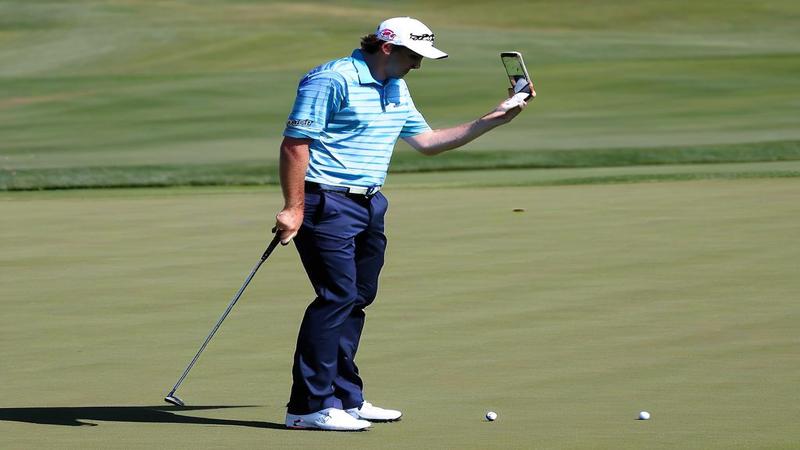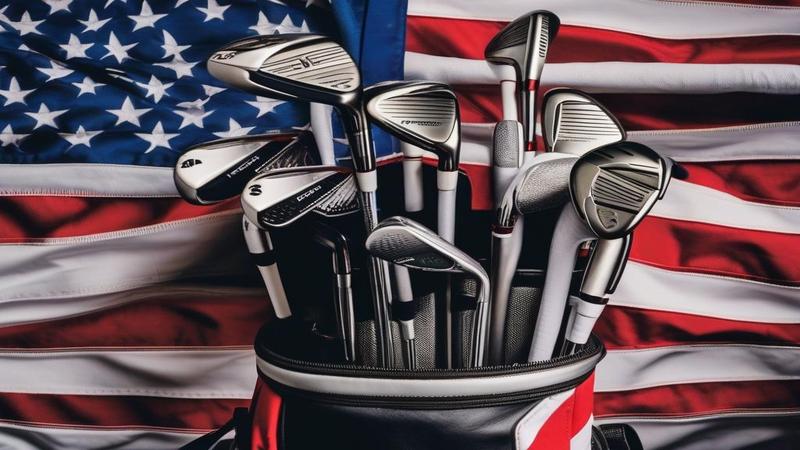Keegan Bradley Preps "Awful" Ryder Cup Calls; Phones Enter Witness Protection

In a move combining the suspense of a tax audit and the romance of a parking ticket, Keegan Bradley announced he is ready to make “awful” phone calls to players left off the Ryder Cup team. It’s the sports version of breaking up over takeout, but with more hushed pauses and fewer fortune cookies.
Bradley says the calls are necessary, which is what people say right before doing something profoundly unnecessary, like inventing a salad with croutons that are just bigger, drier croutons. Golf is a gentlemen’s game until you’re the gentleman on hold listening to smooth jazz while your dreams get transferred to extension 404.
The Ryder Cup, a biennial festival where Europe and America cosplay as cart-path patriots, is the only event where a four-foot putt carries the emotional freight of a divorce decree. The only thing more brutal than missing the team is hearing it in 5G.
“Some of these conversations will be awful,” Bradley hinted, the way meteorologists hint that a hurricane might “bring weather.” He says it like he’s mailing out horcruxes. If you hear your phone ring and it sounds like a funeral bell in golf spikes, don’t answer unless you’re already lying down.
Of course, captains have always curated heartbreak with the tenderness of a bar tab at closing time. In the ledger of sporting pain, the Ryder Cup cut call ranks just behind “we traded you for cash considerations” and just ahead of “we changed the mascot and now it’s your face.”
Bradley, a studier of micro-edges and the quiet mechanics of winning, will bring the historian’s patience and the dentist’s drill. He knows the coaching trees, the practice habits, the way pressure turns a swing into mime theater. He also knows how to press 9 to leave a callback number that nobody wants to call back.
The U.S. selection pool is a crowded ferry, and somebody’s car is going to roll off into the bay. Tradition dictates that the toughest cuts are made while staring out a window into middle distance, but modernity insists on a Bluetooth headset and the public relations tone of an apology to a spilled brand partner.
Analytically, the calculus is a cap sheet with no cap. It’s vibes plus strokes gained plus whether your caddie knows how to make espresso in Italy. Historical precedent favors pairs that look like they’ve solved a murder together. The trend line suggests someone with a putter that speaks fluent Sunday.
Bradley considered outsourcing the bad news to a tasteful robot, but he worried it would be too kind. He briefly clicked on a ‘golf team selection algorithm software’ demo, then remembered algorithms only look neutral until they start subtweeting your bunker play.
One former captain advised the “honest, direct approach,” which in golf means speaking gently until the person Googles the word “alternate” and does the emotional math. Another recommended the “weekend dad approach,” which is promising a fun trip later that never materializes.
To avoid confusion, Bradley reportedly wrote a script. It opens with gratitude, pivots to context, sprinkles in a little destiny, and concludes with a sentence that sounds like a parachute but deploys like a napkin. He’s practicing in front of a mirror that keeps trying to withdraw its reflection.

Sources say a few bubble players have set their ring tones to Gregorian chant. One installed a ‘spam call blocker landline’, which tragically blocked the only call he wanted and let through three car warranties and a guy selling commemorative sand.
Europe, for its part, will pretend they aren’t paying attention while secretly building a wall of spreadsheets you can see from orbit. They’ll act surprised, then unveil a partner pairing with the chemistry of siblings who shared a crib and a seven-iron.
Bradley has rehearsed the pauses, the empathetic murmurs, the line where he says “this is the hardest part of the job” with the sincerity of a eulogy for a dessert cart. The goal is to sound like a friend, but not so friendly that the player asks to crash on your couch.
In team-chemistry terms, he’s balancing a locker room that includes alpha drivers, monk-ish putters, and the one guy who brings a history of the Seven Years’ War to breakfast because he “likes context.” He needs birdies, not book clubs, but he’ll take both if they bleed blue.
Meanwhile, the players aren’t waiting idly. Some are sending highlight reels edited like election ads: slow-motion wedges, testimonials from cousins, dramatic strings swelling whenever a ball lands near a flag like a migratory bird finally finding the one true branch.
Golf agents have switched to the urgent register typically reserved for IPOs and weather alerts. They call media members, they call each other, they call into silence, which replies with a faint sound like a ball circling the cup and choosing violence.
The psychology is crueler than any dogleg. In stroke play you fail privately, in match play you fail in a duet with somebody who might be humming the chorus from another team. Being cut means you’ll be watching TV next to a home treadmill that knows all your lies.
Bradley, to his credit, is not pretending this is normal. He knows the sport runs on tradition the way golf carts run on gossip. He knows Monday morning will forget the calculus, but Tuesday will remember who didn’t pick whom and why that putt on a Tuesday in May suddenly mattered.
There is a scenario, faint and delicious, where every selection is perfect and every “awful” call turns into a motivational montage. But reality insists that at least one voicemail will be archived, labeled “Character Development,” and later revisited like an old tax return with tears.
By sunset, a captain becomes a switchboard with feelings. By dawn, he’s a historian rewriting the footnotes to fit the score. And when the first American birdie drops in Rome or Bethpage or whatever venue promises operatic booing, all that remains are the echoes of ring tones that sounded like doorbells to houses no longer for sale.
In closing, Bradley stared at his contacts, selected a name, took a breath, and pressed call. The phone vibrated, the future waited, and somewhere an algorithm flipped a coin and called it empathy. He whispered, “This will be awful.” The voicemail replied, “Please leave your message after the cut.”
